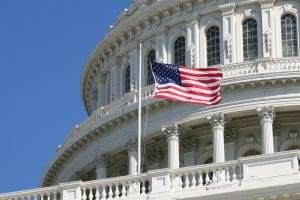The economic crisis caused by the coronavirus pandemic poses a triple challenge for tax policy in the United States. Lawmakers are tasked with crafting a policy response that will accelerate the economic recovery, reduce the mounting deficit, and protect the most vulnerable.
To assist lawmakers in navigating the challenge, and to help the American public understand the tax changes being proposed, the Tax Foundation’s Center for Federal Tax Policy modeled how 70 potential changes to the tax code would affect the U.S. economy, distribution of the tax burden, and federal revenue.
In tax policy there is an ever-present trade-off among how much revenue a tax will raise, who bears the burden of a tax, and what impact a tax will have on economic growth. Armed with the information in our new book, Options for Reforming America’s Tax Code 2.0, policymakers can debate the relative merits and trade-offs of each option to improve the tax code in a post-pandemic world.

Proponents of Wealth Taxation Must Consider its Impact on Innovation
Instead of raising revenue from a narrow tax base through high tax rates, policymakers should identify options to raise revenue efficiently through broad-based taxes consistent with sound tax policy.
4 min read


The OECD’s Pillar 2 Proposal Raises Serious Questions
Addressing tax avoidance is a key political issue for many countries, but these policies should not be discussed without accounting for the size of the current problem, how recent policy changes have addressed it, and what potential impacts might come from this new approach.
4 min read
Reviewing the Deadweight Loss Effects of High Tax Rates
Deadweight loss effects demonstrate why policymakers should pursue a more efficient tax code to achieve distributional objectives, rather than pursuing high tax rates that create disproportionately high economic costs.
4 min read



Results of 2019 State and Local Tax Ballot Initiatives
Election Day 2019 will feature notable tax-related ballot measures in California, Colorado, New Mexico, Pennsylvania, Texas, and Washington. Once the polls close tonight, beginning with Pennsylvania and Texas at 8 PM EST, we will begin tracking the results as they come in.
4 min read